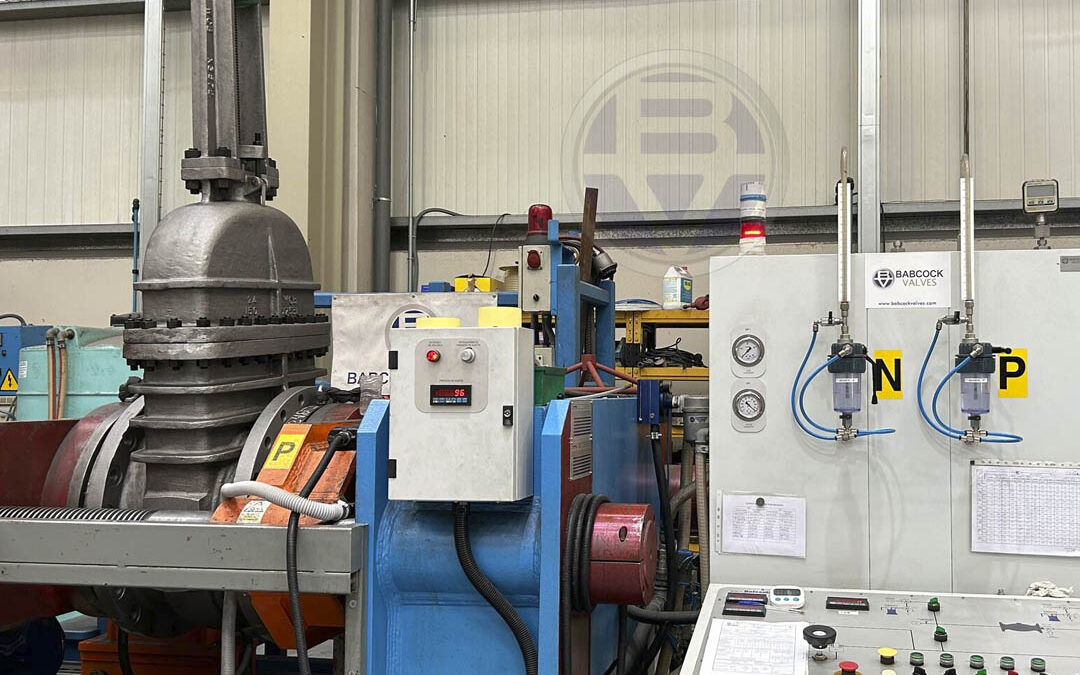At Babcock Valves all valves are important: nuclear-qualified valves with ASME Section III design, Low Emission Bellows Seal valves Helium tested, Steam Extraction Quick Closing Check valves for turbine protection, Instrumented valves both MOV, AOV or Hydraulically operated in classified areas and also standard low-pressure carbon steel flanged valves. All of them carry our quality standards and all are special for our customers, then special for us.
Valve testing is a critical aspect of ensuring the reliability, safety, and performance of industrial valves in various applications. These tests are conducted to verify that valves meet specified standards, operate within design parameters, and can withstand the demanding conditions of their intended environments.
The importance of valve testing lies in its role in preventing potential failures that could lead to safety hazards, environmental damage, or operational disruptions. Rigorous testing helps identify and rectify defects in valve components, ensuring that they function as intended under normal operating conditions as well as during emergency scenarios.
Valve testing also plays a vital role in compliance with industry regulations and standards. Many sectors, including oil and gas, petrochemicals, and power generation, have stringent requirements for valve performance and reliability. Testing procedures help confirm that valves meet these standards, providing assurance to regulatory bodies, operators, and end-users.
Moreover, valve testing is essential for predictive maintenance. By evaluating a valve’s condition through regular testing, operators can identify potential issues before they escalate into costly problems. This proactive approach not only extends the lifespan of the valves but also minimizes the risk of unexpected failures, contributing to overall system reliability.
Various types of valve tests exist, including pressure testing, leak testing, and functional testing. Each type serves a specific purpose in evaluating different aspects of a valve’s performance. Pressure tests assess a valve’s ability to withstand operating pressures, leak tests ensure the integrity of seals and joints, and functional tests confirm that the valve operates correctly under various conditions.
Here we have the penultimate step of the manufacturing process of a 24″ rating 150# gate valve in our test bench passing the relevant hydrotest in accordance with API598.

